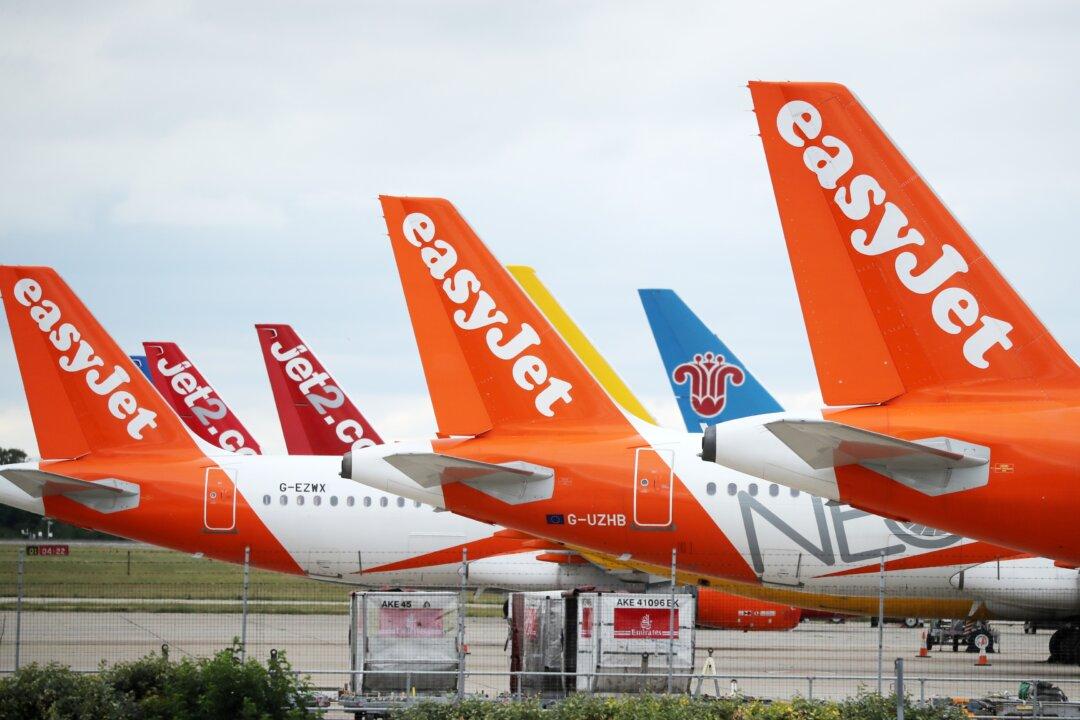LONDON—EasyJet has rejected a takeover offer and will instead raise $1.7 billion from shareholders to strengthen its position in a European market struggling to recover from the COVID-19 pandemic, the British airline said on Thursday.
The low-cost carrier did not identify its suitor, but said the all-share approach fundamentally undervalued its business and the potential bidder had since said it was no longer interested in a deal.





